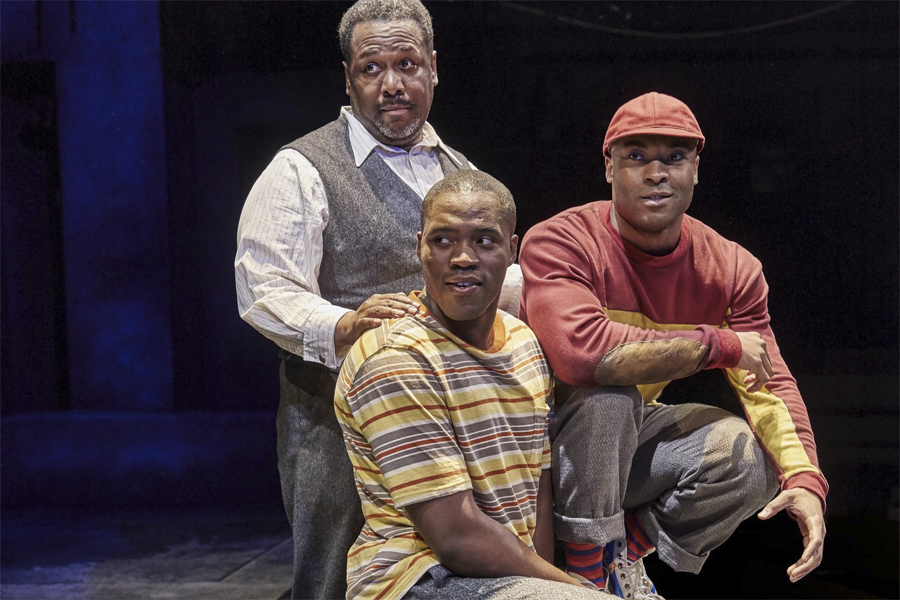A worthy climax to an unofficial season of Miller
For months now there's been an unusually large amount of attention given to the work of Arthur Miller. Revivals of lesser known plays, such as Incident at Vichy, stagings of his autobiographical dramas, notably The Price, and now the Young Vic has extended its run of Death of a Salesman. So why is Miller the man of the moment? A potent reason is that his dramas, written in the 20th century, so often reflect divisiveness and insecurity that resonates with life today in Trump’s America and the wider world.
Miller himself lived the contrast between the American dream and the reality of the Great Depression, which forced his Polish Jewish family to retreat from Manhattan to Brooklyn. He saw first-hand the salesmen – like his uncle Manny, who inspired Death of a Salesman's Willy Loman – selling not so much their products as their personalities.
We meet Loman aged 63, worn out by life on the road. He cannot admit to his wife or sons that he's failing at his job, let alone to himself. Nor can he come to terms with how different their lives have turned out compared to dreams of wealth and success. So he tips into fantasy, where flashbacks of younger, more successful days induce a state akin to manic depression. When his wife Linda persuades him to ask his boss for a job closer to home, events are set in motion that lead to humiliation and his final tragedy.
Marianne Elliott, fresh from reimagining Sondheim’s Company with a female protagonist, works her magic again alongside co-director Miranda Cromwell. The Lomans are an African-American family, whose experience is undoubtedly similar to that of Jewish (and non-Jewish) immigrants. It works startlingly well, not least because of the outstanding cast.
Wendell Pierce in the title role is a huge, tragic figure, filling the stage with his rich booming voice; his body shape-shifting with his mood, from desperate reality to ebullient fantasy. Sharon D. Clarke is mesmerising as Linda, a homemaker holding together a family of broken menfolk. She is heartbreaking in her humanity and towering in her passionate authority, forcing her sons to see that their father is “a human being and a terrible thing is happening to him”.
Arinzé Kene’s bitter Biff, the failed sports star, and Martins Imhangbe’s womanising Happy convincingly play at unhappy families, morphing seamlessly into their younger, hopeful selves in Willy’s fantasies. These are brilliantly imagined thanks to designer Anna Fleischle’s dreamlike scenery, hovering above the Lomans’ shabby apartment, and the sons’ lightning changes from monochrome into colourful gear.
In a uniformly strong cast, Joseph Mydell’s patronising Uncle Ben stands out. His taunting of Willy with his triumphant speculation in African diamond mines is especially cruel in this African-American family. When Willy is reduced to begging his unsympathetic boss Howard (excellent Matthew Seadon-Young) for work closer to home, there is a new and discomfiting feel to his dismissiveness, especially when he (literally) brushes him off, instinctively shrinking at his touch.
Jazz guitarist Femi Temowo plays Willy’s father, as well as his own compositions, interspersed with period music from a cabaret-style onstage band. Linda’s plea that "attention must be paid" to this everyman, an outsider left battered and broken by capitalism, is entirely successful in this poignant, eye-opening production. Willy's tragedy is a parable for our contentious, fractured times and Miller, his creator deserves our urgent attention, now more than ever.
By Judi Herman
Photos by Brinkhoff Mögenburg
Death of a Salesman runs until Until Saturday 4 January 2020. 7.30pm, 2pm (Wed & Sat only). From £15. Piccadilly Theatre, W1D 7DY. 0844 871 7630. https://seatplan.com/london/death-of-a-salesman




